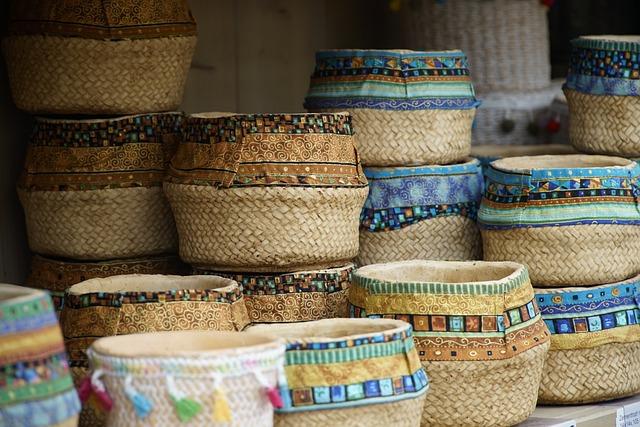Strengthening Pakistan’s Economy: The Future of Trade Opportunities
In a world that is increasingly interconnected, the importance of trade cannot be overstated—especially for a nation poised on the brink of transformative growth like Pakistan. With its strategic geographical location at the crossroads of South Asia, the Middle East, and Central Asia, Pakistan is not just a neighbor to emerging markets; it stands as a gateway to a wealth of economic potential. As global trade dynamics shift and unfold, Pakistan’s economy is entering a critical phase where the right partnerships and policies could catalyze an era of unprecedented growth and stability.
This article explores the multifaceted avenues for trade that could reinvigorate Pakistan’s economic landscape. From agriculture and textiles to technology and logistics, the future of trade promises not just new opportunities for growth, but also a chance to harness local capacities to meet global demands. As we delve into the potential pathways for strengthening Pakistan’s economy through trade, we will examine the challenges that lie ahead and the strategies that could ultimately pave the way for sustainable development. Join us in uncovering how Pakistan can capitalize on its rich resources and vibrant workforce to forge a future brimming with trade possibilities and economic resilience.
Exploring Emerging Markets: Unlocking New Trade Partnerships for Pakistan
As Pakistan seeks to diversify its economic landscape, identifying promising avenues for trade becomes essential. The nation is positioned to forge robust trade relationships with emerging markets, which can catalyze economic growth and innovation. Countries in Southeast Asia, Africa, and Central Asia present significant opportunities, driven by increasing demand for a variety of goods and services. These regions offer potential partnerships that can enhance Pakistan’s exports and imports, provided there is a strategic focus on sectors such as agriculture, textiles, and technology.
To successfully navigate these emerging markets, Pakistan can adopt a multi-faceted approach, emphasizing the need for effective diplomatic engagement and trade agreements. Initiatives like trade expos and business forums can facilitate direct interaction between Pakistani businesses and their counterparts in these markets. Moreover, the government should consider establishing incentives for businesses venturing into these regions, enabling easier access to information and resources. Here’s a brief overview of key markets that hold promise for future trade partnerships:
| Country | Potential Sector | Trade Value (Estimated) |
|---|---|---|
| Vietnam | Agriculture | $500 million |
| Kenya | Textiles | $300 million |
| Uzbekistan | Technology | $250 million |

Revitalizing Key Sectors: Fostering Growth Through Industry Innovation
In an era where rapid changes are the norm, revitalizing key sectors becomes crucial for sustaining economic growth. By focusing on industry innovation, businesses can unlock new avenues for development and encourage a culture of creativity. Key strategies to achieve this include:
- Investing in Research and Development: Encouraging firms to innovate and adapt to global trends can lead to breakthroughs that propel industries forward.
- Leveraging Technology: Integrating advanced technologies such as AI and IoT can transform traditional industries, enhancing efficiency and productivity.
- Strengthening Public-Private Partnerships: Collaborative efforts between government and businesses can drive systemic change, paving the way for extensive reforms.
Moreover, a targeted approach to nurturing emerging sectors can further strengthen these initiatives. Identifying areas ripe for growth and aligning them with international demand can catalyze economic resurgence. Here’s how different sectors can be revitalized:
| Sector | Innovation Strategy | Potential Growth Areas |
|---|---|---|
| Textiles | Smart manufacturing | Sustainable fabrics, automation |
| Agriculture | Precision farming | Organic produce, agri-tech |
| Information Technology | Cloud solutions | Cybersecurity, fintech |

Harnessing Technology: The Role of Digital Transformation in Trade Expansion
The advent of digital transformation is reshaping trade landscapes, enabling businesses to break free from traditional limitations and explore new frontiers. E-commerce platforms, data analytics, and advanced logistics technologies are streamlining operations, allowing for faster go-to-market strategies. By leveraging these tools, Pakistani businesses can enhance their competitiveness on a global scale, tapping into international markets that were previously inaccessible. Moreover, the rise of mobile technology is revolutionizing consumer behavior, enabling buyers and sellers to connect seamlessly, regardless of geographical constraints.
Furthermore, emerging technologies such as blockchain and artificial intelligence are proving instrumental in enhancing trade security and efficiency. These innovations not only facilitate smoother transactions but also build trust among trading partners. To illustrate these advancements, consider the following aspects that can propel Pakistan’s trade capabilities:
| Technology | Impact on Trade |
|---|---|
| E-commerce | Global reach & increased sales |
| Data Analytics | Informed decision-making |
| Blockchain | Enhanced security & transparency |
| AI | Automation & efficiency |
By embracing these technological advancements, Pakistan can strategically position itself in the ever-evolving global trade arena. The fusion of technology with traditional business practices has the potential to create a vibrant economy, driving growth and offering diverse opportunities for traders, entrepreneurs, and consumers alike.

Sustainable Strategies: Aligning Economic Growth with Environmental Responsibility
In the quest to fortify economic prospects, Pakistan stands at a pivotal crossroads where trade opportunities can be intertwined with eco-conscious practices. Sustainable trade not only boosts local economies but also fortifies the resilience of the environment. By investing in greener technologies and practices, businesses can attract eco-minded consumers looking for ethical products and services. Here are some strategies to align economic ambitions with environmental stewardship:
- Green Supply Chains: Implementing eco-friendly logistics can reduce carbon footprints.
- Renewable Energy Adoption: Shifting to solar or wind power for industries minimizes reliance on fossil fuels.
- Waste Reduction Initiatives: Emphasizing recycling and reusability can lead to cost savings and less environmental strain.
Moreover, adopting regulatory frameworks that promote sustainable practices can enhance Pakistan’s attractiveness as a global trade partner. Such measures can include incentives for companies that prioritize green technologies or tax breaks for those replacing hazardous materials with safer alternatives. The collaborative efforts among government, businesses, and local communities can result in a virtuous cycle of growth, benefiting both the economy and the planet. To highlight the pathways forward, consider the following table:
| Strategy | Economic Benefit | Environmental Impact |
|---|---|---|
| Green Supply Chains | Cost reduction in logistics | Lower carbon emissions |
| Renewable Energy Adoption | Long-term energy savings | Decreased reliance on fossil fuels |
| Waste Reduction Initiatives | Improved efficiency and savings | Less landfill waste |
Key Takeaways
as Pakistan stands at the crossroads of economic transformation, the future of trade opportunities beckons with both promise and challenge. The nation’s strategic geographical location, rich natural resources, and youthful workforce present a compelling case for revitalizing its economic framework. By fostering innovation, embracing technology, and strengthening international partnerships, Pakistan can unlock its vast potential on the global stage.
While the path ahead may be fraught with obstacles, the commitment to strengthening trade relations, enhancing infrastructure, and promoting sustainable practices will be pivotal in navigating the complexities of the modern economy. As stakeholders from government, industry, and civil society come together to envision a robust economic future, it is clear that collective effort and strategic foresight are crucial to capitalizing on the myriad opportunities that lie ahead.
Ultimately, the strength of Pakistan’s economy hinges not just on its immediate actions, but on a shared vision for prosperity that transcends borders and embraces the interconnectedness of our globalized world. The future is bright, but it requires a collective commitment to nurture and sustain the flourishing trade landscape that can propel Pakistan into a new era of growth and stability.



